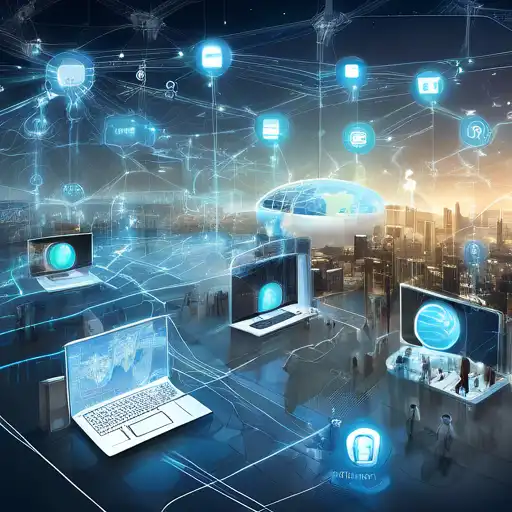The Internet of Things: Revolutionizing Global Connectivity
The Internet of Things (IoT) represents a transformative phase in the digital era, where everyday objects are connected to the internet, allowing them to send and receive data. This innovation is not just changing how we interact with devices but is also reshaping industries, economies, and lifestyles worldwide.
Understanding the Internet of Things
At its core, IoT is about connecting devices over the internet, enabling them to talk to us, to applications, and to each other. A simple example is a smart thermostat that learns your heating preferences and adjusts the temperature accordingly, saving energy and money.
The Impact of IoT on Industries
From healthcare to agriculture, IoT is making waves across various sectors. In healthcare, wearable devices monitor patients' vital signs in real-time, providing data that can predict health issues before they become critical. In agriculture, IoT devices can monitor soil moisture and optimize water usage, significantly improving crop yields.
Challenges and Opportunities
Despite its potential, IoT faces challenges such as security concerns and the need for standardized protocols. However, the opportunities it presents, like enhancing efficiency and creating new business models, far outweigh these challenges.
Future of IoT
The future of IoT is boundless, with advancements in AI and machine learning further enhancing its capabilities. Imagine smart cities where traffic lights adjust in real-time to traffic conditions, reducing congestion and pollution.
As we continue to explore the possibilities of IoT, it's clear that this technology is not just about connecting devices but about connecting lives, making the world more efficient, sustainable, and interconnected.
For more insights into how technology is shaping our future, check out our articles on smart devices and innovation.
